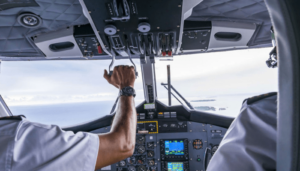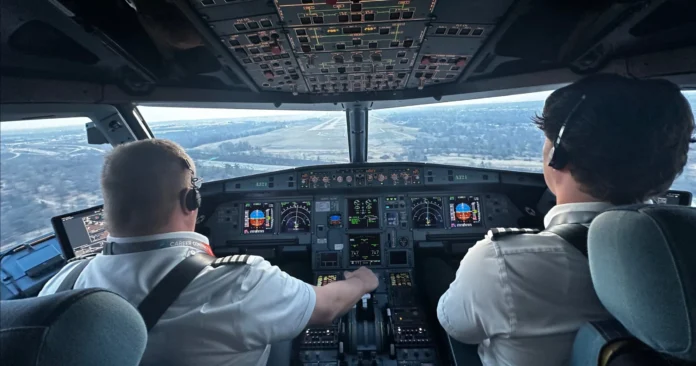The capacity of local airlines operating in the nation’s aviation sector has reduced from over 89 to 52 in the last year, representing a 42 per cent decline, ThePaan has gathered.
The depletion was a result of scarcity and floatation of the naira that has made the value of the foreign currency, especially the dollar, hit the rooftop, thereby, making airlines unable to service their aircraft. The high exchange rate has also made several aircraft on checks abroad trapped as operators are unable to facilitate their return back to Nigeria.

Others are also parked at various airports in Nigeria due to the inability to go for C-checks abroad.
Also, the suspension of Dana Air by the Nigerian Civil Aviation Authority (NCAA), on the order of the Minister of Aviation and Aerospace Development, Festus Keyamo, had added to the depleted numbers of aircraft in the nation’s aviation sector.
The reduction in the fleet of local airlines has led to a capacity gap that fueled flight delays and cancellations. According to www.planespotters.net, Nigeria currently has 10 Airlines conducting scheduled operations in Nigeria and eight of the airlines have a larger percentage of their aircraft parked.
For instance, out of 10 aircraft in the Max Air fleet, four are parked while six are currently in operation; 10 out of 27 Air Peace aircraft are parked and currently out of service; out of four United Nigeria Aircraft, three are in service while one is currently parked; 10 out of 14 Arik Air airline has been out of service while only four are currently in operation.
Aero Contractor has one out of four aircraft in service while seven of Azman Air grounded; one out of eight overland aircraft grounded and one out of Green Africa 4 aircraft out of service.
Only ValueJet with five aircraft and Ibom Air with seven aircraft in their fleet have all their aircraft currently in service.
To this end, the depletion of the fleet has led to delays, cancellations and a hike in ticket fares.
Speaking to ThePaan, the chief executive officer, CEO, Centurion Aviation Services, Capt. John Ojikutu (rtd), said incapable airlines should be merged while advocating for a minimum of six aircraft for a minimum of four routes.
According to Ojikutu, there is a need to review the business plans of all the airlines to know the one that has the capacity and capabilities to sustain operations within its selected routes.
“Two things. One, review the business plans of all the airlines to know which has the capacity and capabilities to sustain operations within its selected routes from its operating base.
“Secondly, within the unsustainable plan for any of the airlines, prepare to merge the incapable ones. A minimum of six is what I think is rational for a minimum of four routes and a maximum of eight routes,” Ojikutu stated.
He maintained that domestic operators must merge or interline to remain in business.
“Our domestic airlines must look inward to determine the profitability of their business plans before venturing into air transportation of passengers or cargo businesses. First, they don’t all have to go to Abuja and Lagos just as FAAN must not always put the other airport’s service charges the same as in Lagos and Abuja.
“For the Domestic Airlines to remain in business, they must merge or interline with themselves and with foreign airlines that must be restricted to not more than two airports that must not be Lagos and Abuja. Domestic Airlines don’t have to operate to Abuja and Lagos where charges should be higher than others.”
Also speaking, the general secretary of Aviation Round Table Initiative (ARTI), Olumide Ohunayo, said ahead of the yuletide, airfares might increase due to the existing capacity constraint. “Again, we are approaching the December period when more people will begin to travel and flights will go up. We cannot stop the airlines but what I can say is that we have to encourage more competition to allow more licensing of AOC,” Ohunayo said.
He stated that the civil aviation authority must create a new licensing regime to create opportunities for smaller operators.




